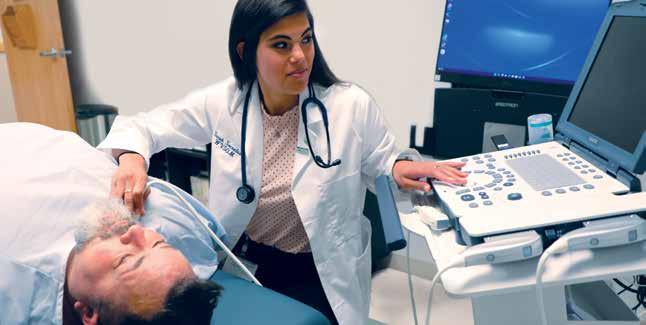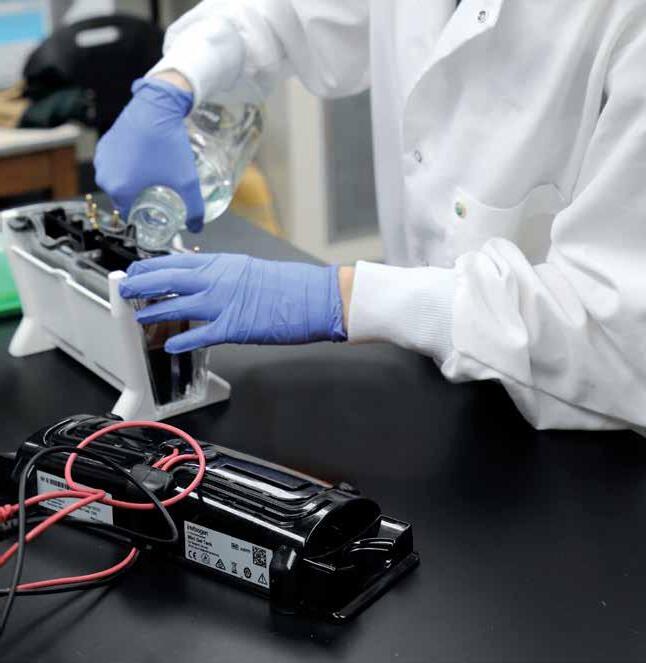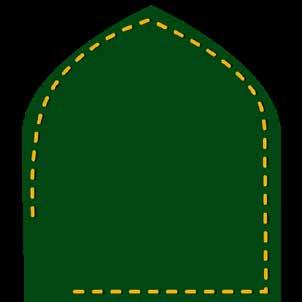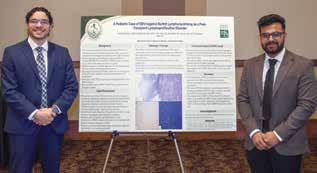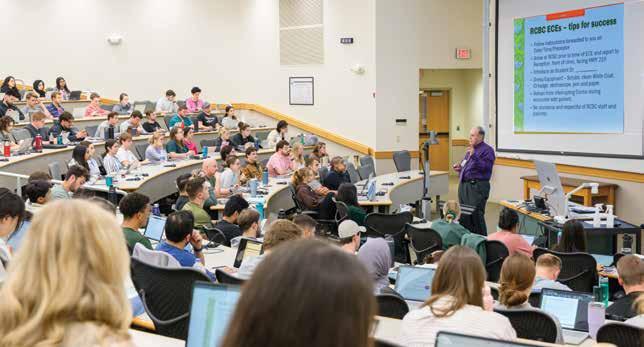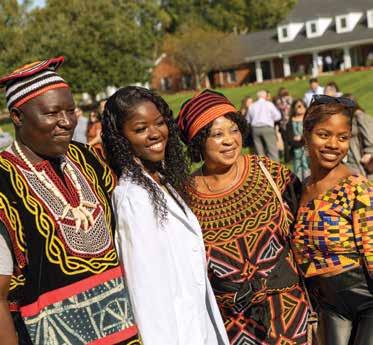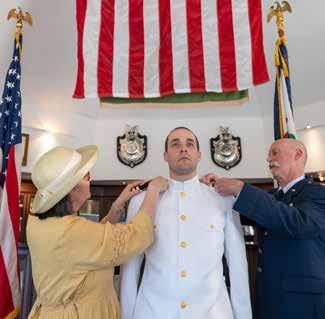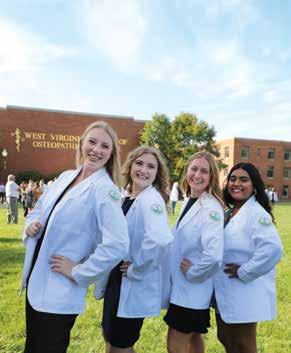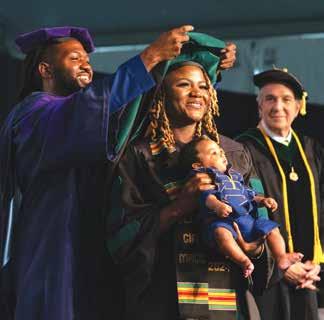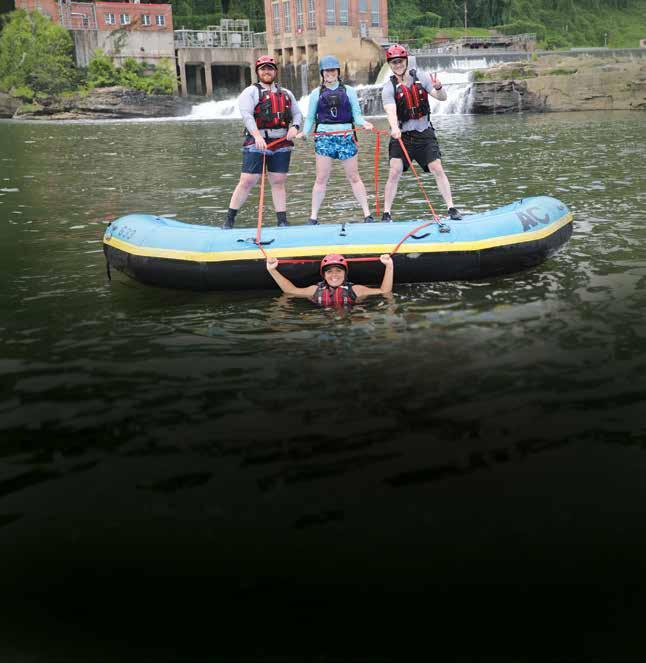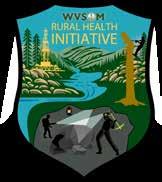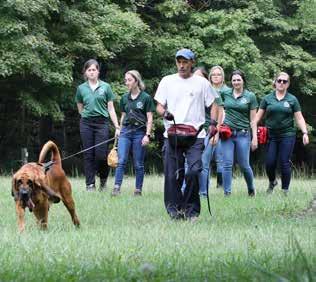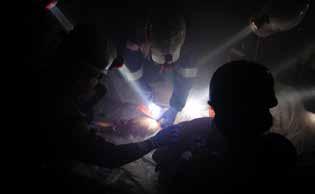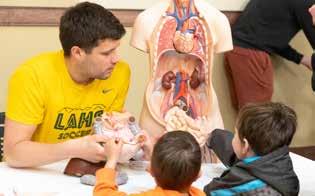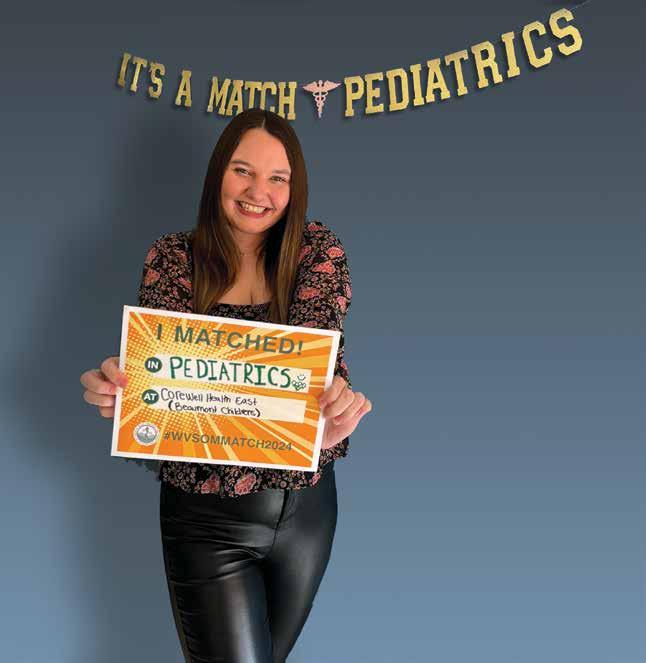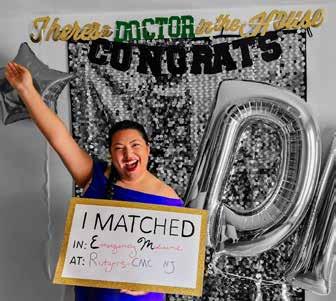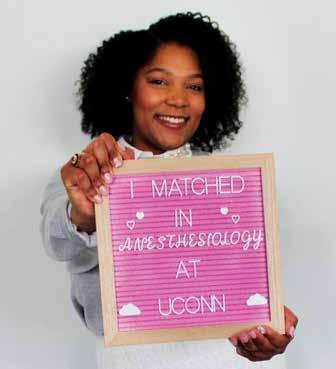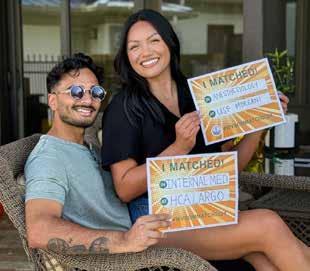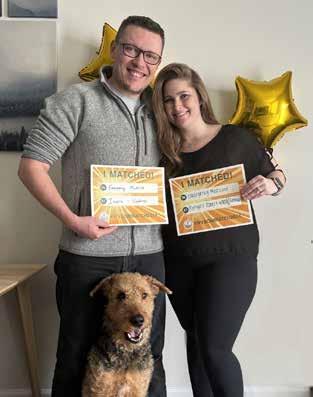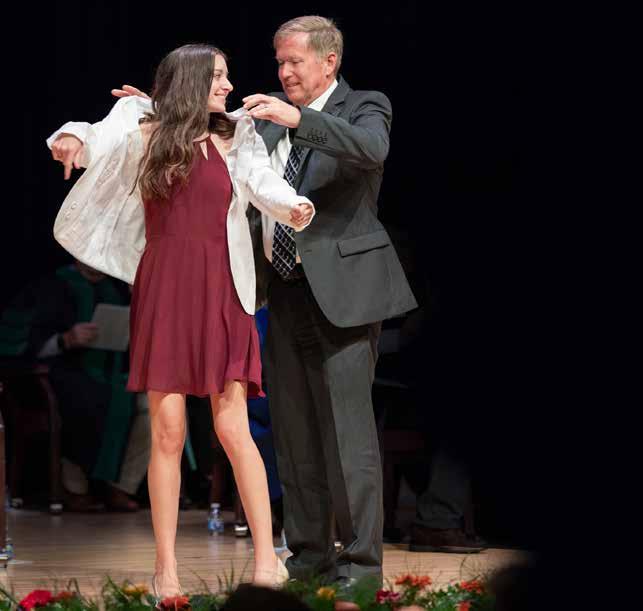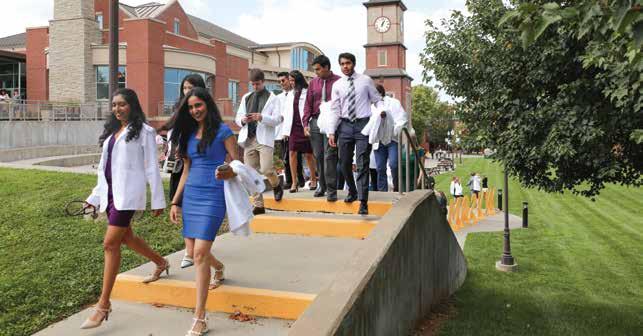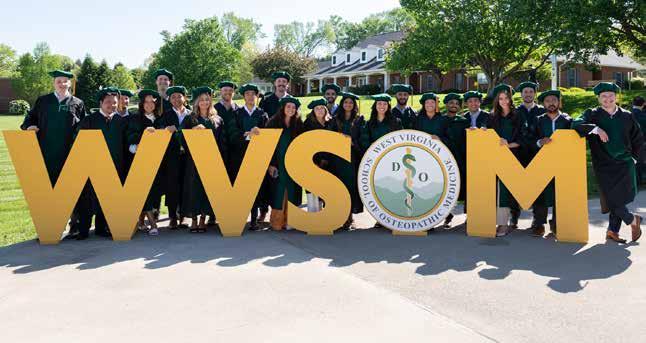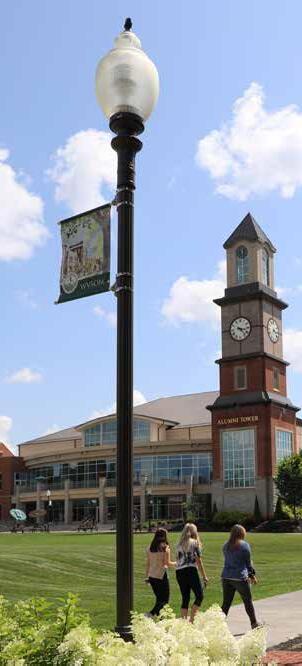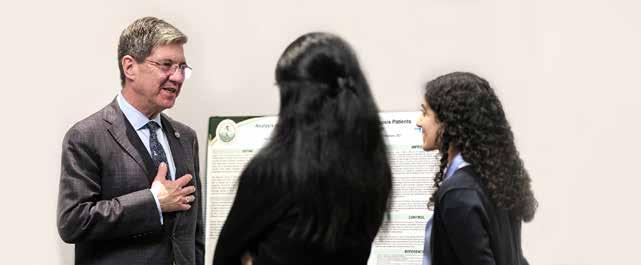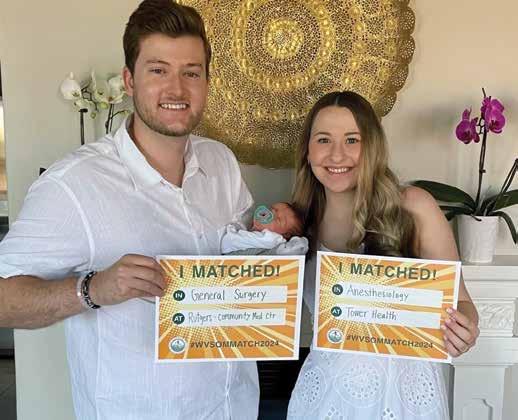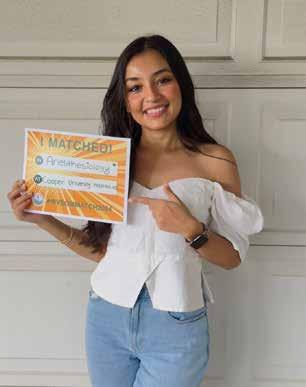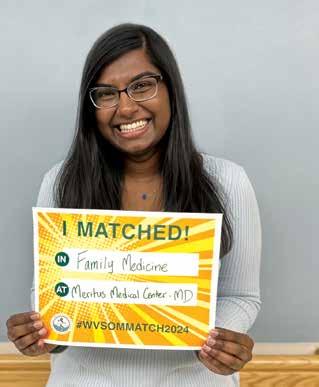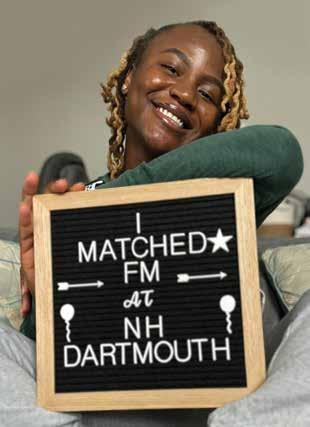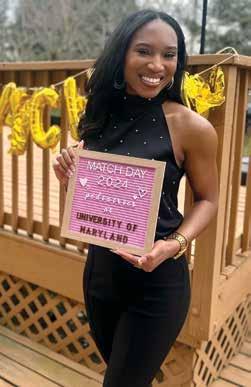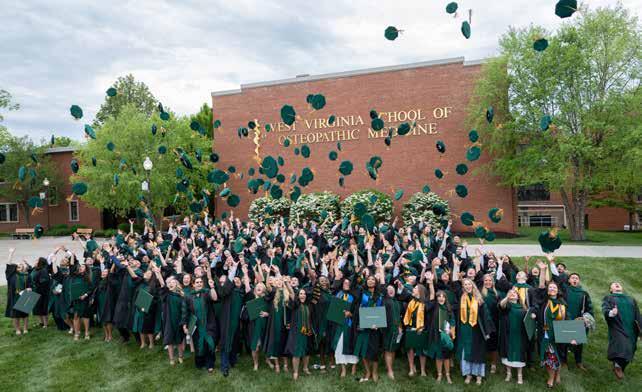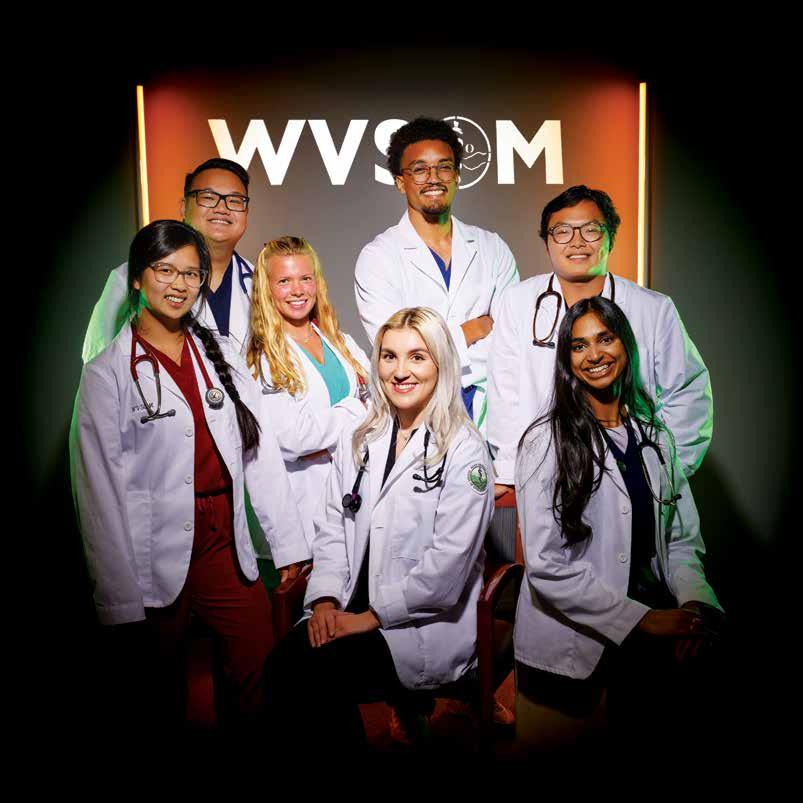
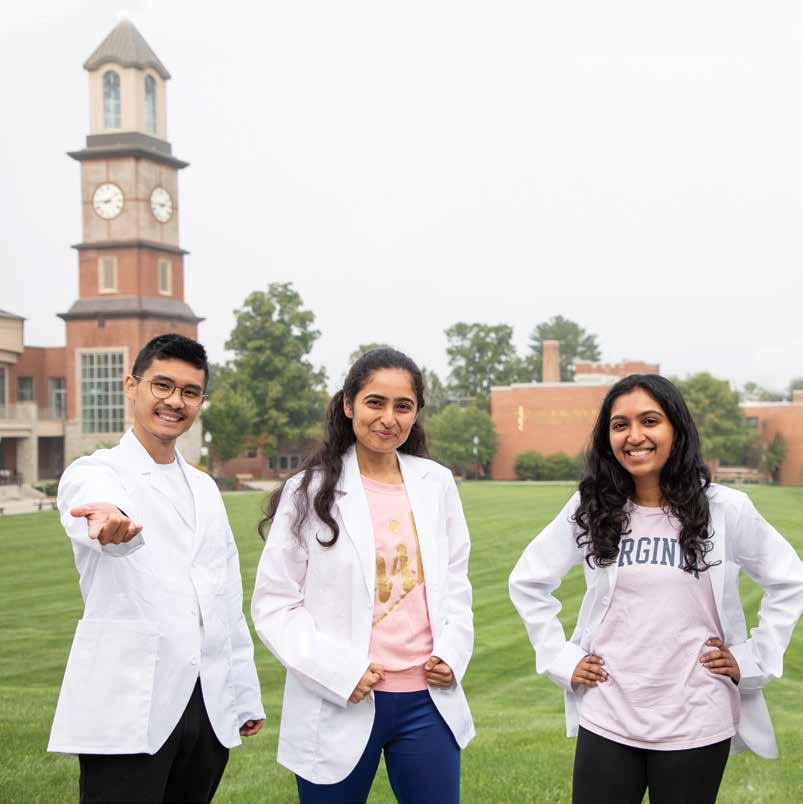
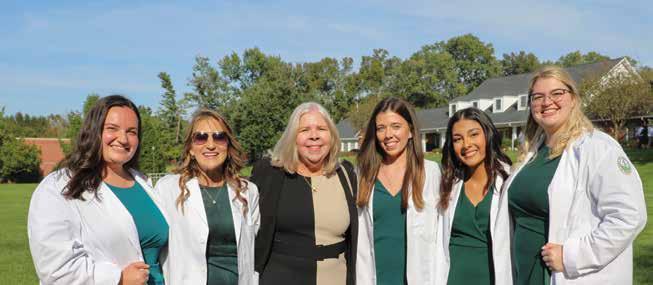
Throughout my career I have placed an emphasis on understanding and creating solutions to physician burnout. I have witnessed doctors devote years of helping patients better their lives while pushing aside self‑care. And as an educator, I have observed students who push themselves to the limit while keeping up with the rigorous demands of medical school just to feel burned out when they graduate, before they even begin residency training.
WVSOM is moving toward a more mentally nourishing environment every day. I’m happy that the school’s new “Finding Health” curriculum has been implemented for the Class of 2028. The curriculum better incorporates wellness, nutrition, exercise, lifestyle and preventive medicine. The schedule will allow additional breaks between courses to give students the opportunity to rest and reinvigorate themselves, helping to promote mental health. It’s unrealistic to think we can make medical school easier, but we can make it kinder and gentler.
At WVSOM, we want to produce doctors who are as altruistic and caring as when they walked in the door and not burn them out while they’re in medical school. We want to keep those ideals intact and nurture rather than extinguish them. We want students to be at their best and take care of themselves because that will help them deliver the best care to their patients.
I am excited that WVSOM has taken actionable steps to expand its ability to promote health and wellness on campus. This has been my career passion, and I’m pleased to see it through at our school. I am confident that we have built upon this medical school’s compassionate, hometown environment. Nothing warms my heart more than knowing that our current and future students will have a place to excel while maintaining wellness. We can’t wait to have you here to be part of it.
My best,
Linda Boyd, D.O.
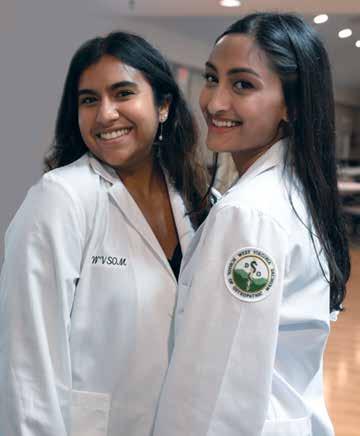
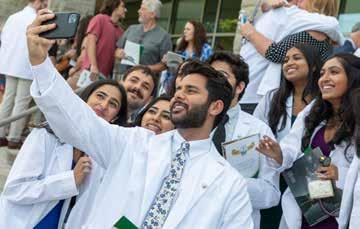
There is no such thing as a typical WVSOM student — our aspiring physicians are as diverse as the world itself. But no matter what your background is, our faculty and staff are experts at providing the guidance you’ll need to succeed. Our goal is to foster independent learning and prepare you to become an outstanding osteopathic physician, and we do it with the same personal, compassionate touch we teach you to offer patients. Time and time again, our alumni tell us their years at WVSOM made them feel like they were part of a family.
That same sense of community permeates beautiful Lewisburg, W.Va., a small city in the heart of the Greenbrier Valley, nestled among the Appalachian Mountains. Lewisburg offers a unique mix of culture and outdoor recreation: Theaters, art galleries and music venues — including one of only four Carnegie Halls in the world still in continuous use — are not far from hiking and biking trails, whitewater rafting, caving and other attractions for those who like to stay active. Greenbrier County is also home to annual events tourists travel from afar to attend, such as Healing Appalachia, the Ronceverte Food Truck Fest, the West Virginia Renaissance Festival, the State Fair of West Virginia, the Summer Concert Series at Ivy Terrace, the Lewisburg Chocolate Festival and the culinary themed Taste of Our Towns.
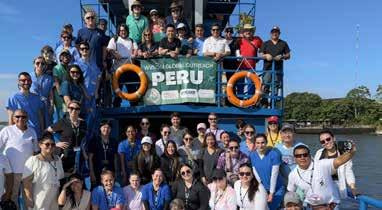
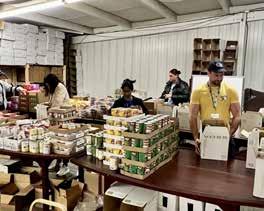
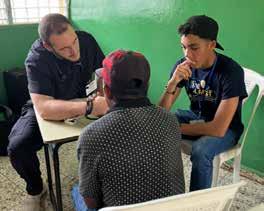
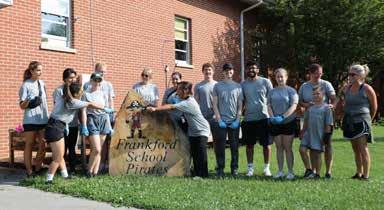
WVSOM believes in giving back to the community. Through the Translating Osteopathic Understanding into Community Health (T.O.U.C.H.) program, our student body volunteers thousands of hours annually, allowing WVSOM to share the professional values of osteopathic medicine with those who might not be aware of them and instilling in students a lifelong commitment to service.
Following orientation week, incoming students have the chance to take part in the Day of Service. During this event, students volunteer with various local businesses and nonprofits, offering their time and skills to make a positive impact. This presents an excellent opportunity for students to not only bond with one another but to form meaningful connections within the community.
First ‑ and second ‑ year students can participate in a spring break medical service trip through DOCARE International or the Christian Medical and Dental Associations.
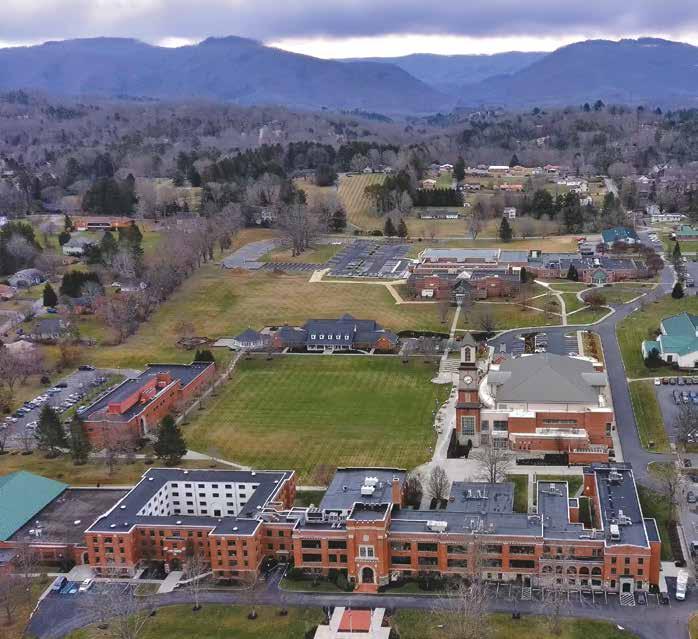
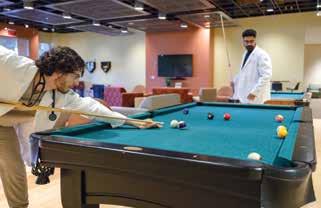
WVSOM Student Center
The WVSOM Student Center offers an exceptional environment to enrich the student experience. The Office of Multicultural and Student Affairs lies at the heart of the building, providing opportunities for student engagement and leadership as well as individual and collaborative study. This area also features a multifunctional room for breastfeeding, prayer and relaxation. Additionally, the WVSOM Student Center includes a student government office, conference room, O’Cafe, Campus Store and a recreation room equipped with video games, pool tables, a pingpong table, a foosball table and a television. The Campus Store sells textbooks and medical supplies and instruments used in WVSOM’s curriculum as well as official WVSOM branded merchandise. The O’Cafe offers fresh dining options and meals prepared with health and wellness in mind. At the center of campus is an open field, perfect for partaking in outdoor sports and activities like the annual President’s Softball Game. Additionally, Adirondack chairs are strategically placed, providing an ideal setting to unwind and engage in friendly conversations.

Clinical Evaluation Center
At the Clinical Evaluation Center (CEC), students confront and treat real world patient situations in a training environment. The manikins appear lifelike in many ways. Technicians program a set of symptoms for the simulator to demonstrate as the student evaluates, diagnoses and suggests treatment while a faculty member looks on. Whether it’s learning to intubate a trauma patient, deliver a baby or distinguish heart murmurs, the manikins are valuable teaching tools during the first two years of medical education. The CEC also houses 24 simulated patient exam rooms where local community members are trained to present symptoms as students learn to take personal histories and recognize key issues.
WVSOM’s Clinical Evaluation Center was the first in the state accredited by the Society for Simulation in Healthcare in the area of teaching/education.
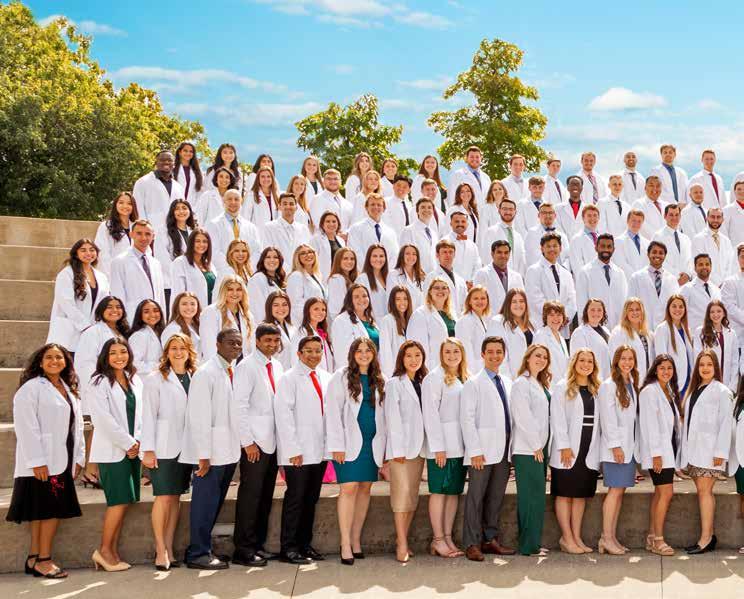
Doctors of Osteopathic Medicine practice a holistic approach to patient care with four core principles of osteopathic medicine:

• The body is a unit of mind, body and spirit.
• The body is capable of self-regulation, self-healing and health maintenance.
• Structure and function are reciprocally interrelated.
• Rational treatment is based on these principles.
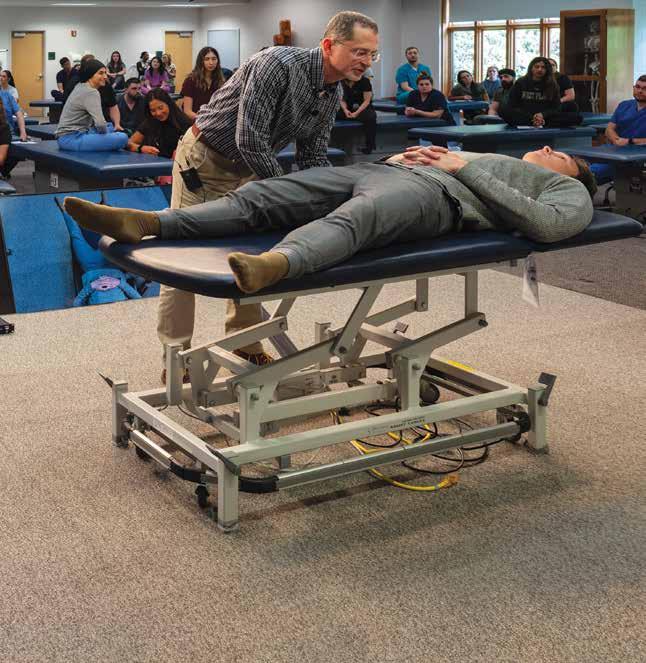
More than 150 years of healing
The founder of osteopathic medicine, Andrew Taylor Still, D.O., pioneered the concept of “wellness” in 1874. He recognized the inherent ability of the body to heal itself and stressed values of preventive medicine, eating properly and keeping fit as important regimens for a long and healthy life.
Osteopathic medicine is a distinct form of medical care founded on the philosophy that all body systems are interrelated and dependent upon one another and that the body has self healing abilities.
Osteopathic physicians, like all medical doctors, can choose any specialty, prescribe medication, perform surgeries and practice medicine anywhere in the U.S. An osteopathic medical education provides training in osteopathic manipulative medicine, in which physicians use their hands as another tool to diagnose and treat injury and illness.
While WVSOM’s program focuses on primary care and rural medicine, the curriculum is designed to prepare students to enter any residency program in any specialty, in any environment.
The nation’s fully licensed osteopathic physicians practice the entire scope of modern medicine, bringing a patient ‑ centered, holistic, hands on approach to diagnosing and treating illness and injury. At WVSOM, osteopathic principles and practice are incorporated into a variety of learning environments to complement comprehensive coverage of basic and clinical sciences.
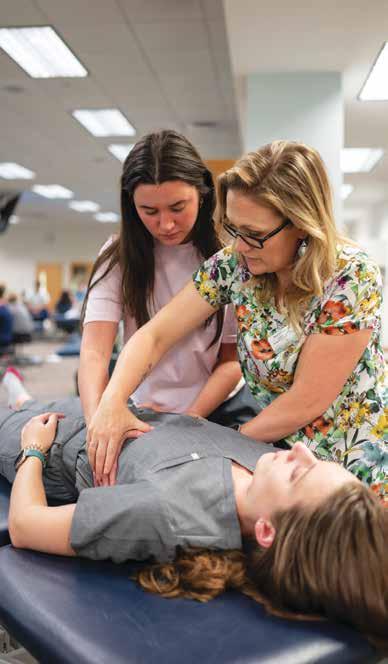
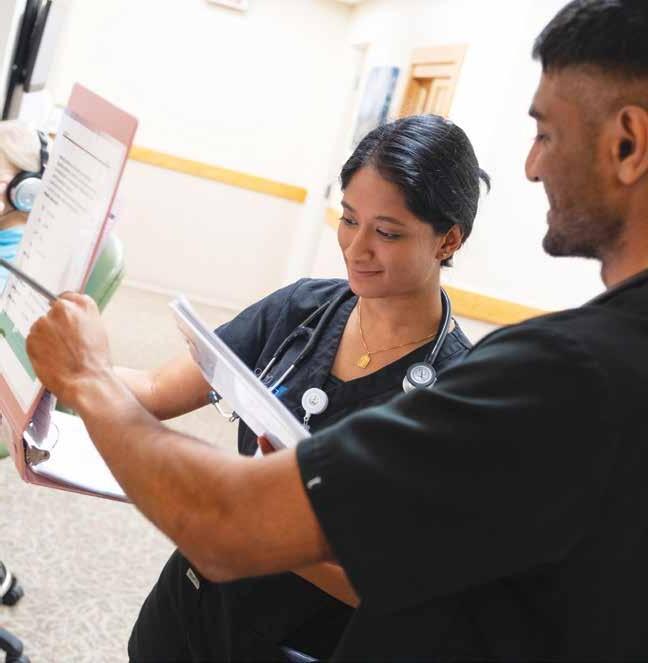
WVSOM has fully redesigned its preclinical curriculum to emphasize health and wellness in addition to teaching about the diagnosis and treatment of disease. The new curriculum structure fosters a positive learning environment for diverse learners, with a focus on student wellness. Establishing healthy habits in medical school can help to prevent burnout later in physicians’ careers.
During the first two years, students complete eight organ ‑ system ‑ based course blocks designed to provide the strong basic science foundation needed for the practice of osteopathic medicine.
Throughout each course, two longitudinal threads are embedded in the curriculum: Health and Wellness, as well as Professionalism in Practice.
The Health and Wellness thread helps students learn pertinent nutrition, exercise, lifestyle and prevention content to treat existing illnesses and to help their patients “find health.”
The Professionalism in Practice thread develops osteopathic physicians who are committed to delivering compassionate, patient centered care while upholding the highest levels of professionalism and integrity.
To achieve the highest level of integration, longitudinal Clinical Skills and Osteopathic Principles and Practice courses are synchronized with this sequence of system course blocks.
The new curriculum will afford students a one ‑ week break after each course block. During these eight “flex weeks,” students can choose to take vacation or a short elective course. All course exams will take
place on Fridays, so that students can have a “golden weekend,” free from studying.
To ensure that all students can reach their potential, WVSOM’s courses utilize a dynamic balance of guided independent learning activities coupled with in class activities as well as hands on labs, group learning opportunities and practical application experiences where students apply what they have learned.
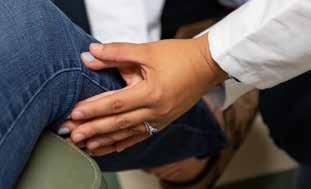
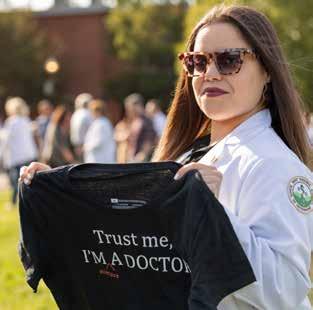
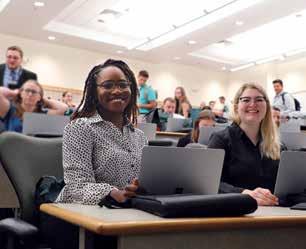
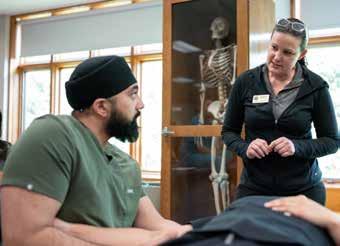

Essentials of Osteopathic Medicine I Essentials of Osteopathic Medicine II Nervous System and Mental Health


Hematologic and Circulatory System


A Schedule That Fosters Wellness
• Designed to emphasize health and wellness in addition to teaching about diagnosis and treatment of disease.
• Positive learning environment for diverse learners, with a focus on student wellness.
• Organ system based course blocks to provide a strong basic science foundation.
• Didactic sessions take place Monday ‑ Thursday mornings.
• Fridays are reserved for medical simulation learning activities and final course exams.
• A one ‑ week break is incorporated after each course.
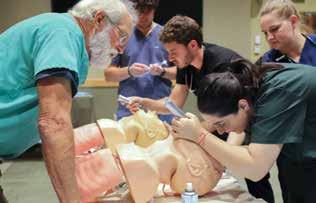

Respiratory System

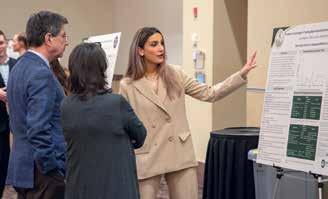
Endocrine and Gastrointestinal System Renal System


Human Development and Reproductive System Capstone and Board Exams

Clinical Skills II
Osteopathic Principles and Practice II

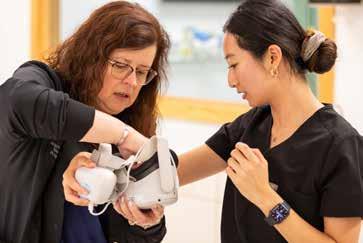
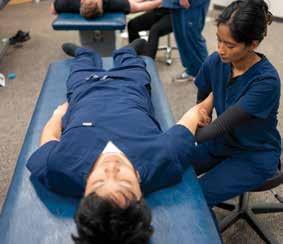
Clinical experience becomes the primary educational curriculum during the third and fourth year. WVSOM’s Statewide Campus (SWC) system allows students to gain specialized training in various disciplines through a regional consortium of clinical sites, predominantly located in West Virginia. The SWC system is designed to immerse students in primary care specialties and help them better understand what it means to care for patients living in rural or underserved areas.
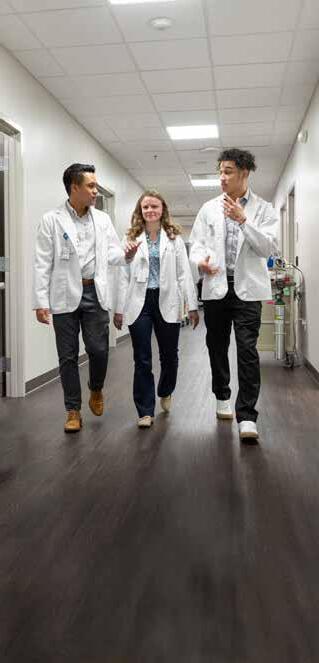
Locations are selected by students who attend one of the seven SWC regions to serve as their home base as they work beside clinical faculty and preceptors. Students are also required to complete eight weeks of family medicine and internal medicine, as well as four weeks of pediatrics, surgery, OB ‑ GYN/women’s health, psychiatry, emergency medicine and four weeks of electives.
Students will also prepare for the COMLEX and the OSCEs. COMLEX is the pathway to licensure for osteopathic physicians in the U.S. and is taken at the completion of second and third year.
Objective Structured Clinical Examinations (OSCEs) are designed to test competence in clinical skills performance.
Year 3
During the third year, students are required to complete 40 weeks of clinical rotations and prepare for the COMLEX and the OSCEs.
Year 4
In the final year of clinical rotations, students can expand beyond West Virginia to locations across the nation and abroad. Students are required to complete 36 weeks of clinical rotations, including 12 weeks of electives in areas that fulfill their individual interests.
In addition to clinical rotation requirements, students may be involved in clinical case conferences, tumor boards, skill labs and professional development seminars. During this period, students will learn to present clinical cases to a variety of audiences.
